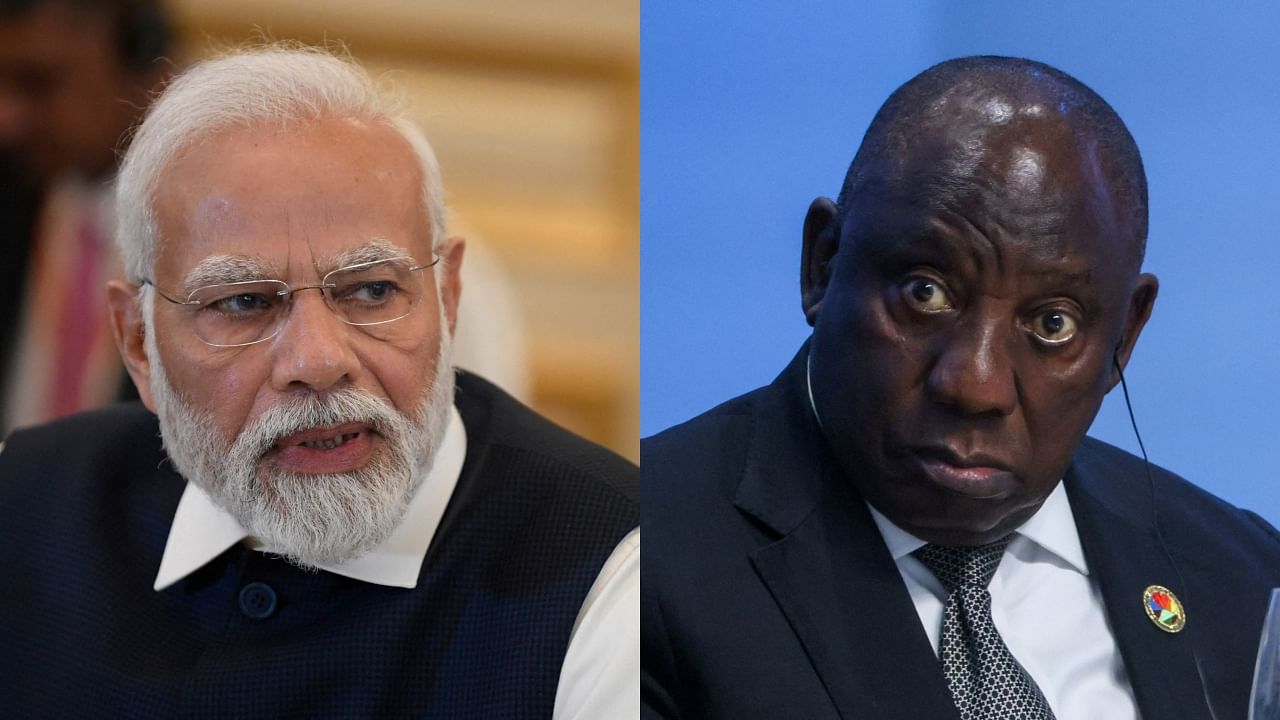
After a call from President Cyril Ramaphosa, Prime Minister Narendra Modi on Thursday decided to visit Johannesburg in South Africa to take part in the BRICS summit later this month.
The uncertainty over Modi’s visit to Johannesburg ended when Ramaphosa called him and invited him to take part in the BRICS summit, which the South African president will host on August 22 and 24.
Modi accepted the invitation and conveyed to Ramaphosa that he looked forward to his visit to Johannesburg to participate in the BRICS summit, according to a press release issued by the Prime Minister’s Office.
The prime minister and the South African president exchanged views on a number of regional and global issues of mutual interest.
Ramaphosa conveyed to Modi the full support of South Africa for India’s initiatives as part of its ongoing G-20 presidency. He told Modi that he looked forward to visiting India to attend the G-20 summit, which the prime minister would host on September 9 and 10 next, according to the press release issued after the phone call. The two leaders assessed the progress in bilateral cooperation, including in the context of the 30th anniversary of establishing India’s bilateral diplomatic relations with South Africa being celebrated in 2023, it added.
Putin decided against physically attending the BRICS summit in view of the arrest warrant issued against him by the International Criminal Court (ICC) on March 17 last for allegedly scheming to deport children of Ukraine to Russia. He will participate in the summit virtually, while his foreign minister Sergey Lavrov will travel to Johannesburg to attend the conclave. South Africa is a signatory of the ‘Rome Statute’, the treaty governing the ICC, and it would have come under pressure from the United States and other western nations to execute the arrest warrant against the Russian President had he travelled to the country to attend the BRICS summit in Johannesburg. Putin’s decision to participate in the summit virtually thus saved South African President Cyril Ramaphosa from a diplomatic predicament.
India, unlike South Africa, is not a signatory of the Rome Statute and hence has no obligation to execute the arrest warrant issued against the Russian President if he comes for the G20 summit.
New Delhi has been exploring the possibility of the prime minister taking part in the BRICS summit virtually, just as Russian President Vladimir Putin would do. After receiving the call from the South African president, the prime minister, however, decided to travel to Johannesburg and take part in the summit in person.
The BRICS now comprises Brazil, Russia, India, China and South Africa. With the geopolitical tension triggered by the Russia-Ukraine conflict escalating tension between the former Soviet Union nation and the western nations, Moscow over the past few months supported Beijing’s push for admitting new members and expanding the BRICS, apparently to turn it into a counterweight to the G7 and a challenger to the United States and the European Union, particularly on global economic issues. New Delhi has been resisting the bid, stressing that the bloc should first frame rules to expand the bloc.
India is reluctant to move fast on the expansion of the BRICS as such a move could further complicate its strategic balancing between its decades-old strategic partnership with Russia and its expanding ties with the United States and the rest of the West.
Brazil is also apprehensive about China’s plan to make the BRICS overtly adversarial to the West.
The forthcoming meeting of the BRICS summit in Johannesburg may see the bloc starting the discussion on draft criteria for admission of new members.
